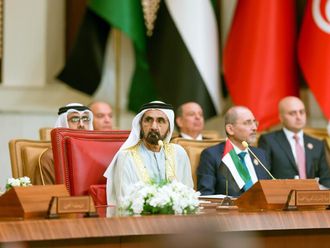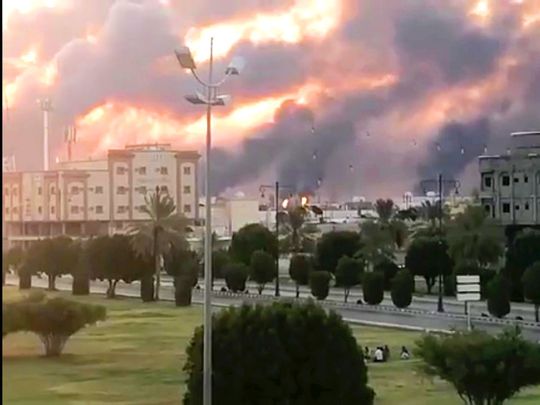
Global oil prices are 10 per cent higher after an attack on the heart of Saudi Arabia's oil infrastructure. Here's what we know so far.
Investigations ongoing after 'egrerious crime': Saudi Arabia
Investigations are still ongoing to determine the source of the attack, according to the statement issued by the Saudi Ministry of Foreign Affairs.
According to the Saudi Press Agency (SPA) the Kingdom condemns this egregious crime, which threatens international peace and security, and affirms that the primary target of this attack is global energy supplies, as this attack is in line with the previous attacks against Saudi Aramco pumping stations using Iranian weapons.
Saudi Arabia expresses its appreciation for the positions taken by the international community that have condemned and denounced this act.
The kingdom calls upon the international community to assume its responsibility in condemning those that stand behind this act, and to take a firm and clear position against this reckless behaviour that threatens the global economy.
As the investigations are ongoing, the kingdom will invite UN and international experts to view the situation on the ground and to participate in the investigations.
The kingdom will take the appropriate measures based on the results of the investigation, to ensure its security and stability. The Kingdom affirms that it has the capability and resolve to defend its land and people, and to forcefully respond to these aggressions.
Who attacked Aramco?
In an update on Monday evening, a Saudi military spokesman said initial investigations show Iranian weapons were used in the weekend attack on the country's oil installations.
Though Yemen's Iranian-backed Houthi rebels claimed responsibility for the attacks Saturday, saying they launched 10 drones that caused the extensive damage, this is under debate. The US released satellite images overnight that it says contain evidence showing that the attacks came from either Iraq or Iran.
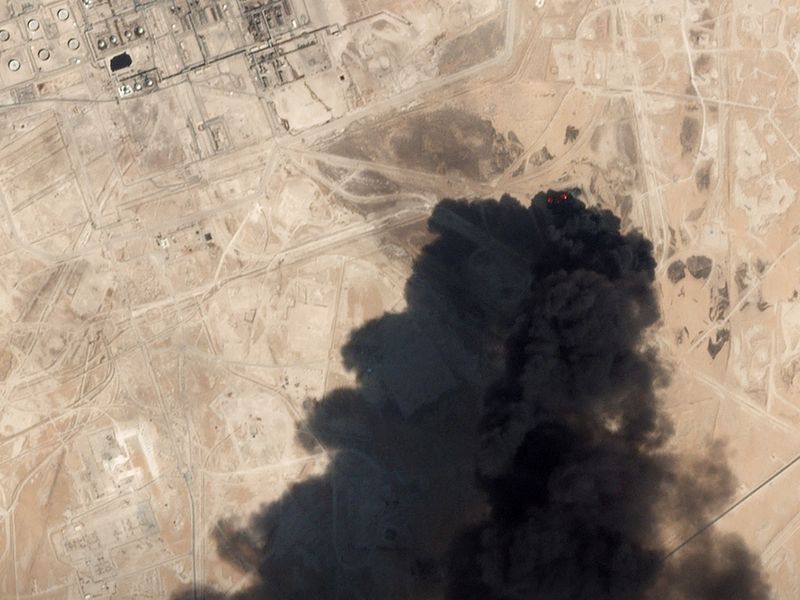
Colonel Turki al-Malki also told reporters in Riyadh on Monday that the early morning strikes on Saturday were not launched from Yemen as claimed by Iranian-allied Yemeni rebels who are at war with Saudi Arabia.
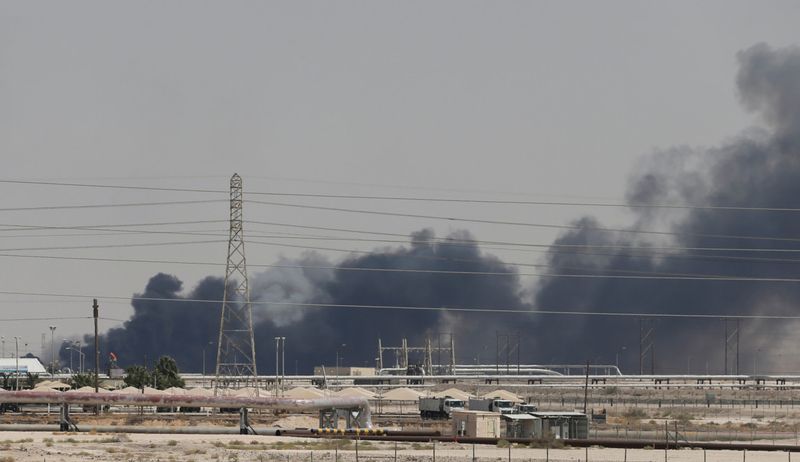
Al-Maliki did not elaborate further and said the results of the investigation would be made public to the media when complete.
Trump on Iran denial: "We'll see?"
In his latest tweet, Donald Trump, president of the United States of America said, "Remember when Iran shot down a drone, saying knowingly that it was in their “airspace” when, in fact, it was nowhere close. They stuck strongly to that story knowing that it was a very big lie. Now they say that they had nothing to do with the attack on Saudi Arabia. We’ll see?"
Earlier on Sunday, Trump said the United States believes it knows who was behind the attacks on Saudi oil facilities and is “locked and loaded,” but is waiting for verification and for a Saudi assessment of responsibility before deciding how to proceed.
“Saudi Arabia oil supply was attacked. There is reason to believe that we know the culprit, are locked and loaded depending on verification, but are waiting to hear from the Kingdom as to who they believe was the cause of this attack, and under what terms we would proceed!” Trump said on Twitter.
“PLENTY OF OIL!” he added in a subsequent tweet.
Oil prices
Global energy prices spiked Monday by a percentage unseen (over 10 per cent) since the 1991 Gulf War after the weekend attack on key oil facilities in Saudi Arabia caused the worst disruption to world supplies on record, further fueling heightened tensions between Iran and the US.
Analysts for Goldman Sachs say the attacks could add anywhere from $3 to more than $15 to the cost for a barrel of oil, depending on how much production Saudi Arabia loses and for how long.
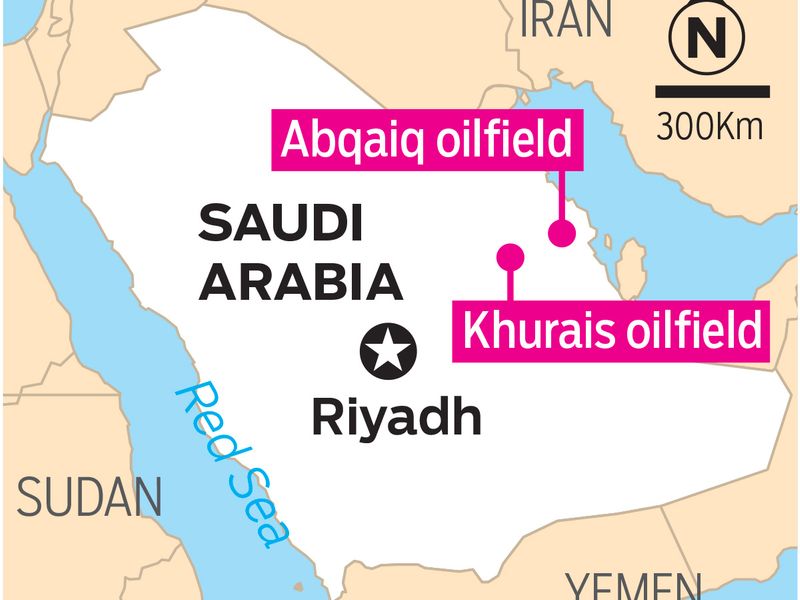
The attacks on Aramco's main crude processing facility knocked out 5.7 million barrels of daily oil production for Saudi Arabia, or more than 5% of the world's daily crude production.
More threats
The Houthi rebels, who claimed responsibility for devastating weekend attacks, threatened Monday to carry out more strikes and urged foreigners to stay away.
"We assure the Saudi regime that our long hand can reach any place we want at any time we choose," a Houthi military spokesman said in a statement.
Global reactions
China
China's foreign ministry has expressed concerns over the weekend attacks on key Saudi oil sites and says authorities have noted reports that the US blamed Iran for the strikes. Hua Chunying, the spokeswoman at the Ministry of Foreign Affairs, says that "given the absence of a conclusive investigation and result, I think it is irresponsible to determine who should assume responsibility for it."
Hua also on Monday reiterated China's position opposing "any expansion and intensification of conflicts."
She added that Beijing calls on "the parties concerned to avoid actions that could escalate regional tensions."
Germany
Juergen Hardt, parliamentary foreign policy spokesman for the Christian Democrats, told media network RND on Monday, "there is no clear evidence of direct Iranian aerial attacks on the Saudi refinery, but Iran's close collaboration with the Yemeni Houthi militia is obvious."
The German government said earlier today that it sees no need to open its strategic oil reserves following the attack on major oil sites in Saudi Arabia.
Economy Ministry spokeswoman Beate Baron said Monday that officials are "of course watching the situation very closely" but don't currently see any threat to the oil supply in Germany. Europe's biggest economy relies almost entirely on imports for its petroleum needs, but draws on supplies from several producers, mainly Russia.
Norway
A leading economist in Norway says the attack on major oil sites in Saudi Arabia could unleash a series of events that would hit the Norwegian economy hard.
Oeystein Doerum, chief economist with the Confederation of Norwegian Enterprise, the country's largest organization for employers and the leading business lobbyist, says Norway is "completely dependent on trade with the outside world."
Doerum told the Norwegian news agency NTB on Monday that "it is positive when oil prices rise as a result of an increased demand but not when it is the consequence of a terrorist attack."
Norway is one of the world's largest exporters of oil and gas.
Russia
Russia's foreign ministry has expressed "grave concern" about a weekend attack on key oil facilities in Saudi Arabia.
The ministry said in a statement on Monday that it condemns attacks on vital infrastructure or any actions that could disrupt global energy supplies and upset energy prices.
Japan
Japanese Trade Minister Isshu Sugawara says Japan is closely watching a possible impact on its oil supply and market movement following a weekend attack on key Saudi Arabian oil facilities.
Sugawara said in a statement on Monday that Japan has oil reserves for about 230 days of domestic consumption but if necessary, it can release some of the reserves and set in motion other measures, in cooperation with other countries and the International Energy Agency.
Investors get jittery
Airlines and cruise operators are coming under pressure as jittery investors send their shares lower before the opening bell due to concerns over rising oil prices. While Saudi Arabia can maintain exports and use reserves in the short term, a prolonged disruption would hurt Opec's spare capacity and the ability of International Energy Agency to use reserves to shore up the market, the company said.
Among the airlines whose shares are down 2 per cent or more in premarket trading are Southwest Airlines Co., American Airlines Group Inc., Delta Air Lines Inc., JetBlue Airways Co., Spirit Airlines Inc. and Alaska Air Group Inc.
Cruise operator Royal Caribbean Cruises Ltd. dropped 2 per cent, while Carnival Corp. fell 3 per cent.
"High oil prices are clearly an unwelcome event in the current economic climate, especially if they stay at this level for a prolonged period of time," Ivan Petrella, associate professor of economics at Warwick Business School, said in an emailed statement.
The demand for more limited oil supplies is helping to push the shares of energy companies higher. Exxon Mobil Corp.'s stock rose 4 per cent, while Royal Dutch Shell, PetroChina Co. and Total SA all rose about 2 per cent.
- Inputs from AP, AFP, Bloomberg



